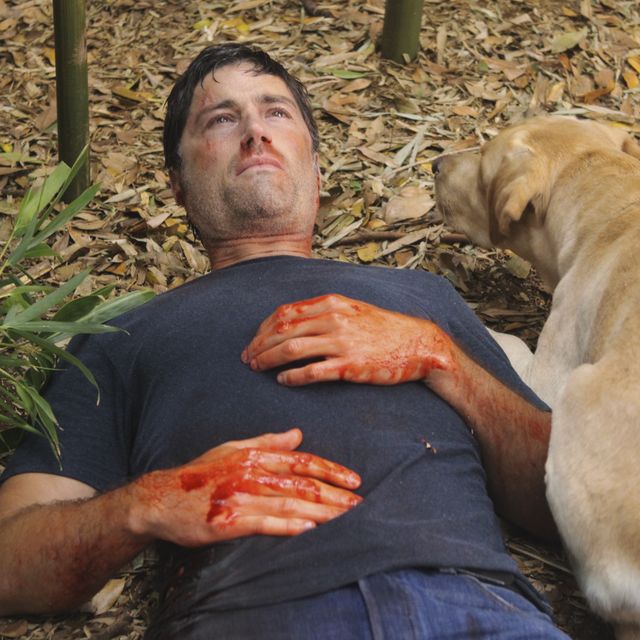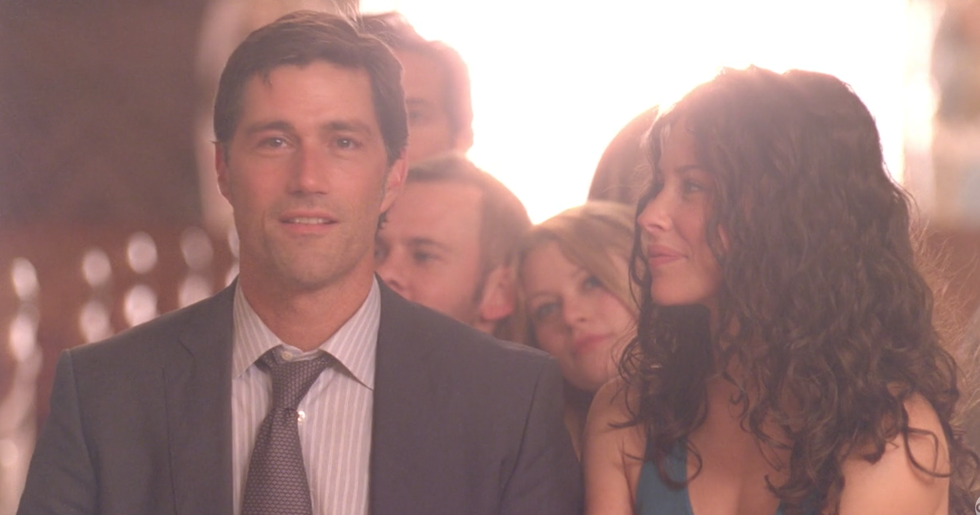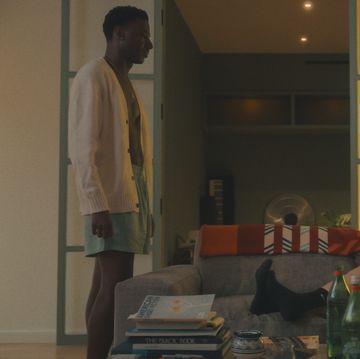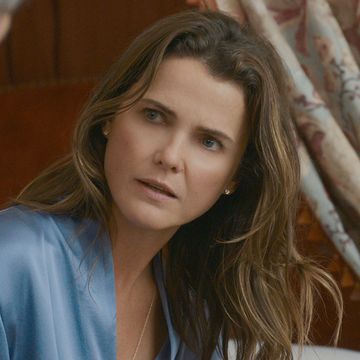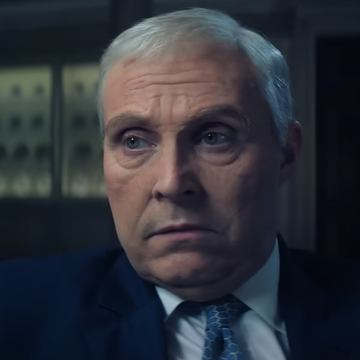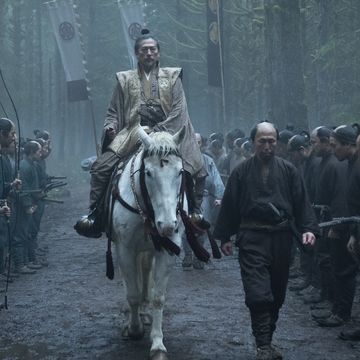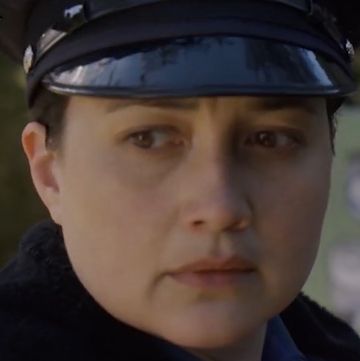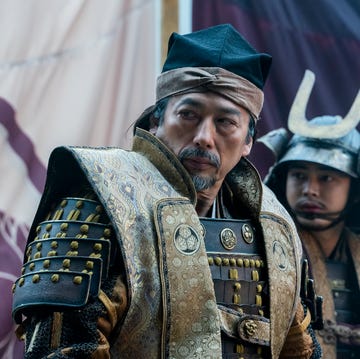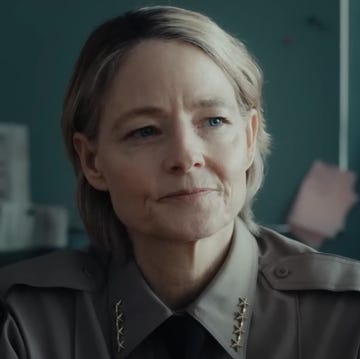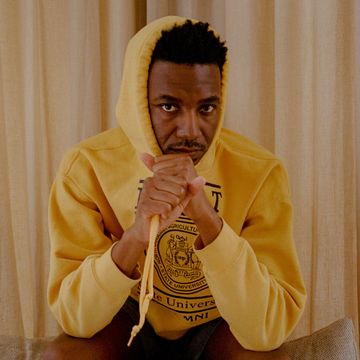My high school statistics teacher was one of the first people to entertain my love of television. He was also the first to tell me about a show called Lost that debuted on ABC in September 2004. Having missed the whole first season and some of the second, he burned me bootleg DVDs to watch over spring break. By the time I came back, I was hooked. I followed Jack and Sawyer and Kate and Sun all the way to the end of the series, and I remember watching the finale episode in my sparsely furnished college apartment with a pizza and a bottle of wine. I remember crying. I remember thinking that the final moments—the church and the reunited cast and a Vincent (Vincent!) laying alongside a fatally injured Jack—was simply beautiful. But when I asked my stats teacher his thoughts, Mr. Milani was fully against it. He hated that the finale barely tried to answer the questions. Milani was decidedly a man of science, not of faith.
With time on my hands, I revisited the series in the past few months. That's a big undertaking because Lost's disappointing series finale is as iconic as the show. At the time it aired—on May 23, 2010—fans famously did not understand what the hell had happened when Jack died on that island and was suddenly in a church with all his other dead friends. Were they really dead the whole time? Why didn't it answer every question this show presented in six seasons?
For years, the creators stayed silent—refusing to over-explain the ending. Eventually they caved and confirmed that: 1) no, not everyone was dead the whole time, 2) yes, that was a "heaven-esque" setting in the church where all the characters met, and 3) the purpose was to tell a story about people lost and searching for answers. There were official plans for a volcano hell scene. There were also unfounded theories that everyone was dead. But the big rub? Lost left a lot of viewers dumbfounded.
That finale, man. That finale busted a fandom wide open, pitting the logical against the emotional. As more answers have been revealed from showrunners Damon Lindelof and Carlton Cuse, opinions have shifted a bit over the years. Still, I anticipated on this rewatch that I might fall into that pessimist camp. But the thing is, the finale remains nearly perfect to me. I think a big part of that is because I always invested in the series because it was about flawed people who (using my best Barbra Streisand voice) need people. And if that's not how you watched it, sure, I can see the point. The problem, in that respect, is that Lost kept stepping in piles of shit it on its way to the ending: Eloise Hawking, and Katey Sagal's random episode, and being stuck in the '70s. But Lost's finale was a beautifully simplistic finish to an often convoluted series. It asked viewers to imagine that nothing matters but people, and that, in its own way, is unimaginably perfect.
To accurately assess that finale, you kind of have to go back to the beginning of Season Five. At this point, the Oceanic Six (Sun, Kate, Jack, Hurley, Sayid, and Baby Aaron) have escaped the island and are attempting to lead normal lives while being haunted by the fact that they've abandoned the rest of the castaways on the island, which has been thrown into a time loop. Locke manages to escape the island through death, reappearing before the Oceanic Six and begging them to return. The season's multiple timelines, time jumps, and tertiary characters (hello, Widmore and Eloise?) lead to a massively confusing season that seems to forget big questions around the island's mystical qualities—questions that were too alluring to ignore, yet ultimately inconsequential to the plot.
And that's the biggest issue. Even as it was spiraling toward a final season, Lost kept introducing new questions it never wanted to answer. The series, as a whole, was always about surviving this plane crash and escaping the island, and Season Five could have ultimately operated as a season where the six people who left realize the importance of humanity without the extreme additional mythical, sci-fi elements. Instead, it launched a literal reset—a 1977 hydrogen bomb detonation at the end of Season Five blows up part of the island and effectively changes history, rendering the plane's initial crash obsolete and alters a new timeline we see play out in Season Six.
That launched the final march to a Lost conclusion—a resolution that explains that it's people, not mystery, that drives the series forward. The series spent a brilliant final season creating a thoughtful, albeit sometimes incomprehensible, alternate timeline that followed characters through a whole different existence where they managed to find one another anyway. Each character in the final season comes to reconcile both of their worlds, realizing that the one constant is the people they've shared their time with. And the finale culminates in a cast of characters saving Jack, the man who spent six seasons trying to save all of them. From the beginning, Jack and Locke represented "man of science, man of faith" respectively, and the show always wanted to prove that it's the faith in people that matters most.
It's a potentially hokey premise, but there is something beautiful in the fact that there is so much of the series that we don't understand, and yet it doesn't matter. The finale requires a certain level of faith that we're uncomfortable with... a reexamining of our own logic and expectations. Through the final season, Lost made the move to shed a lot of the baggage it had introduced along the way. Part of that irreverence had to do with Lost creators biting off more than they could chew, but it also had to do with a refocusing in its final season that aimed to center the series on its intended purpose of "people first." And even with all its stumbles, Lost couldn't have ended any other way.
I tried to figure out the origin of that purpose, which I think dials back to Episode Five of Season Four, "The Constant." Desmond introduces this concept that we all have "constants" that ground us to our reality. For the emotionally inclined, it's the Lost equivalent of "you're my person." For the brainier crowd, think of it like an Inception totem. So instead of spending the final season trying to land a whole laundry list of successes, it took one final swing and introduces the alternate timeline to prove that even in two different realities, we can all be tied together with human relationships.
The finale itself is the culmination of a refocused premise that shouldn't have been ignored so overtly for a season and a half. The reason that the Lost finale failed in so many people's minds is because it was the coda to a series that had completely shifted gears. Audiences waited for a finale that answered the logical puzzles Lost overtly posited, when its creators aimed to home in on a nuance that had been subtly woven in over the course of six years. If you think of Lost as a first draft for the superior series that come later—The Leftovers and The Good Place, namely—the missteps become more palatable. Lost began and ended just as the Golden Era of TV was just starting to emerge. In many ways it's responsible for the cerebral, complex shows being created today. And at the time, it's possible that audiences weren't entirely ready for a nuanced conclusion that required the viewer to do much of the theoretical legwork. Watching it 10 years later, it's a finale that is on par, and expected from some of the greatest television of today, whether it's The Leftovers or The Good Place or Watchmen.
And if you're one of those people who just can't shake it a full decade later, then hey—at least we had Vincent.
